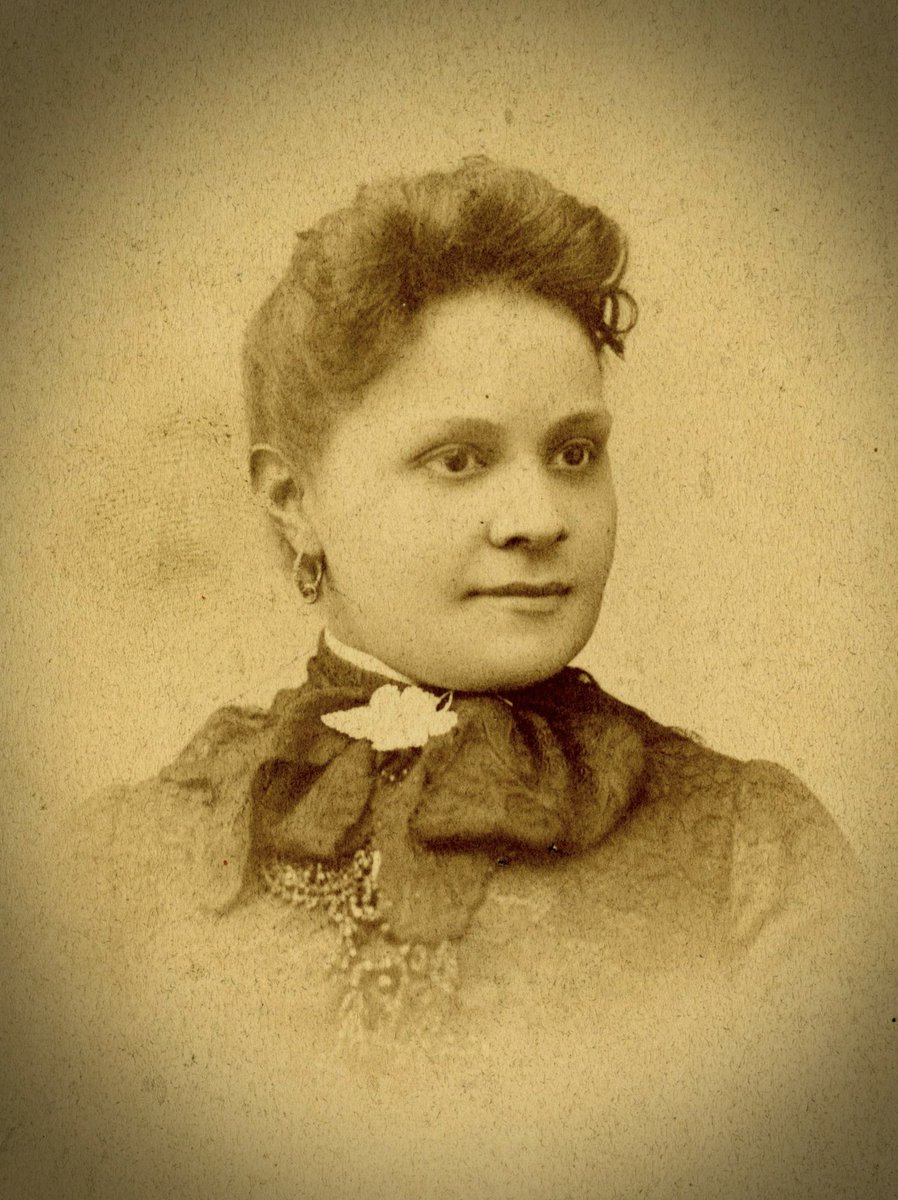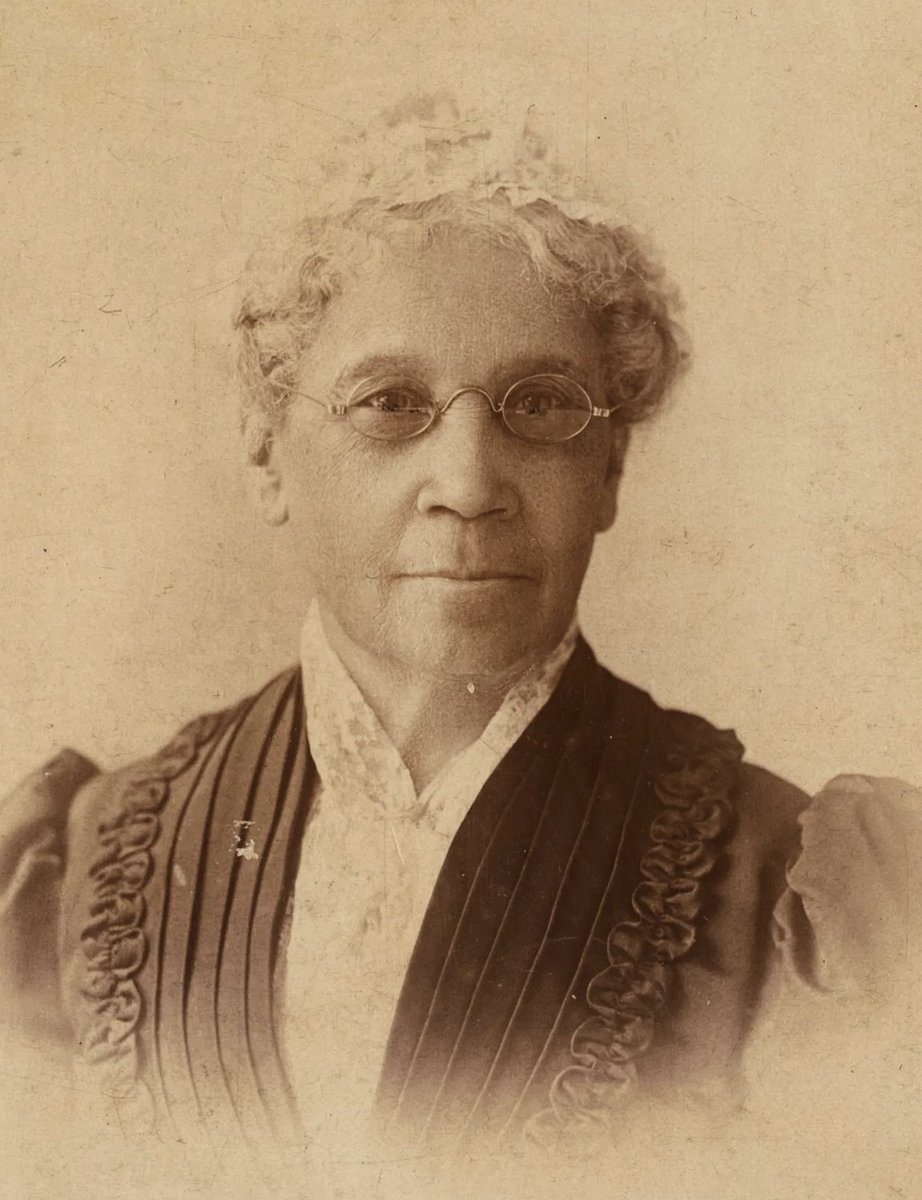
Today: The generation-spanning impact of Mary Richardson Jones. Mrs. Jones was born free in Tennessee in 1820. About 15 yrs later, the Tenn. legislature prohibited Black men from voting, & Mary's father decided to move the family to Illinois. @CCP_org #IllinoisBlackConventions 

The Richardsons migrated to Alton.
Mary married John Jones in 1841, & they soon moved to Chicago. They opened their home to freedom-seekers. They collaborated with John Brown. During the Civil War, Mary was pres. of the Colored Ladies’ Freedmen’s Aid Society of Chicago.
Mary married John Jones in 1841, & they soon moved to Chicago. They opened their home to freedom-seekers. They collaborated with John Brown. During the Civil War, Mary was pres. of the Colored Ladies’ Freedmen’s Aid Society of Chicago.

The Colored Ladies' Freedmen's Aid Soc. solicited donations to help people escaping from slavery and to support Black soldiers and their families. Mary Ann Shadd Cary was one of their agents! Mary R. Jones remained prominent in Black Chicago long after her husband died in 1879.
Mrs. Jones worked with Fannie Barrier Williams (pic), who was 35 years her junior, to lead women of the Prudence Crandall Literary Club. Focused on challenges facing Black women and girls, Jones said in 1888: “We want more justice to women...and more virtue among men.” 

Jones drew the attention of Ida B. Wells, who arrived in Chi. in 1893. Wells made Jones "honorary" chair of a successful new Black women's club that enrolled “the most prominent women in church and secret society, school teachers and housewives and high-school girls.”
Mary R. Jones lived to see the formation of the National Association of Colored Women (1896) and the National Association for the Advancement of Colored People (1909). When she died in 1909, the Chi. Defender declared she had been “loved and admired by every one.” 

Read our profile of the amazing Mary Richardson Jones here: coloredconventions.org/black-illinois… #IllinoisBlackConventions @ChicagoMuseum @MichelleDuster @JAHHM @chipublib 

The @CCP_org "affirms Black women’s centrality to nineteenth-century Black organizing," and we've sought to deliver on the CCP's "pledge to account for Black women’s labor & leadership in our own historical work and in our own project practices." coloredconventions.org/about/principl…
• • •
Missing some Tweet in this thread? You can try to
force a refresh






